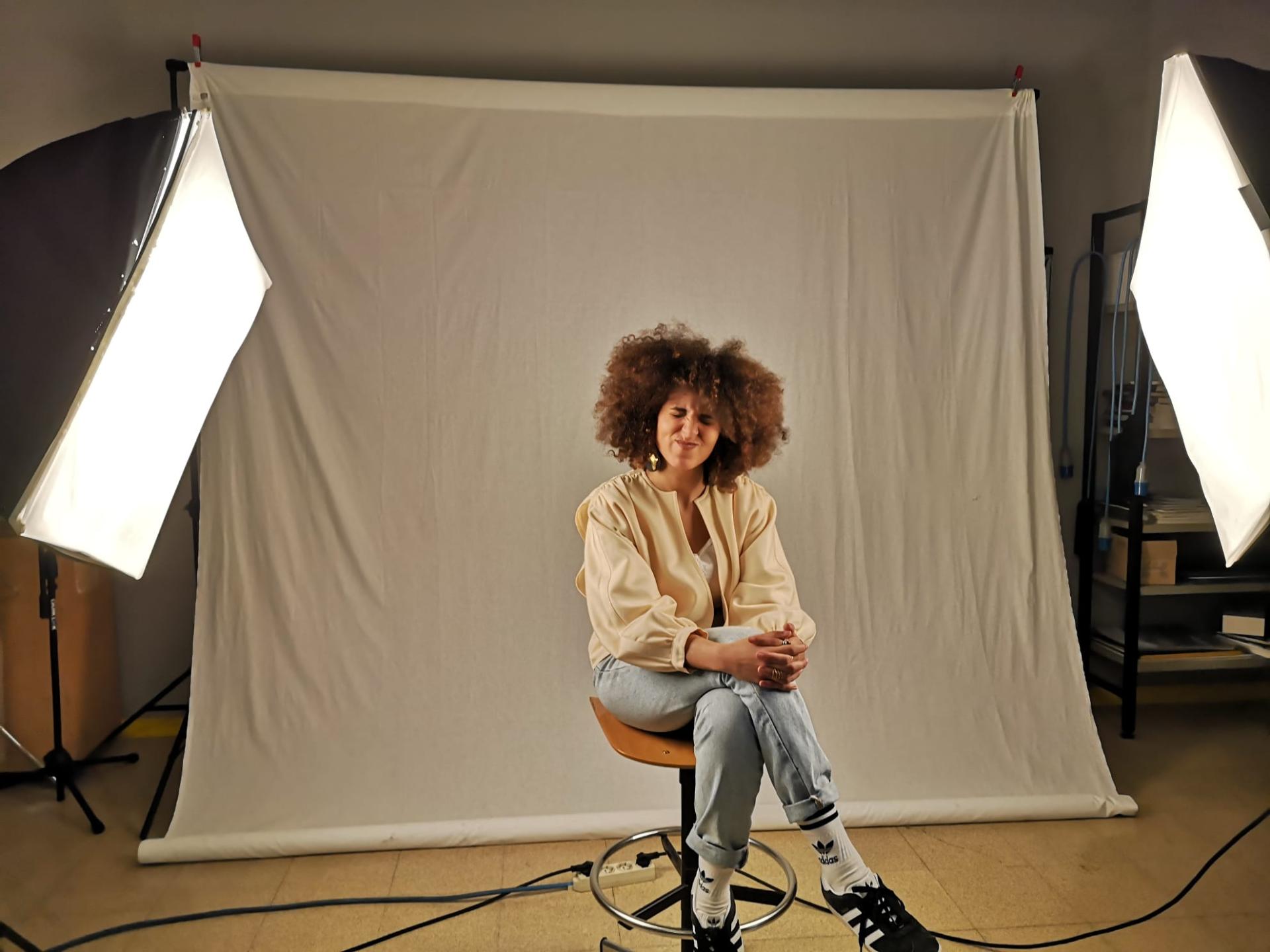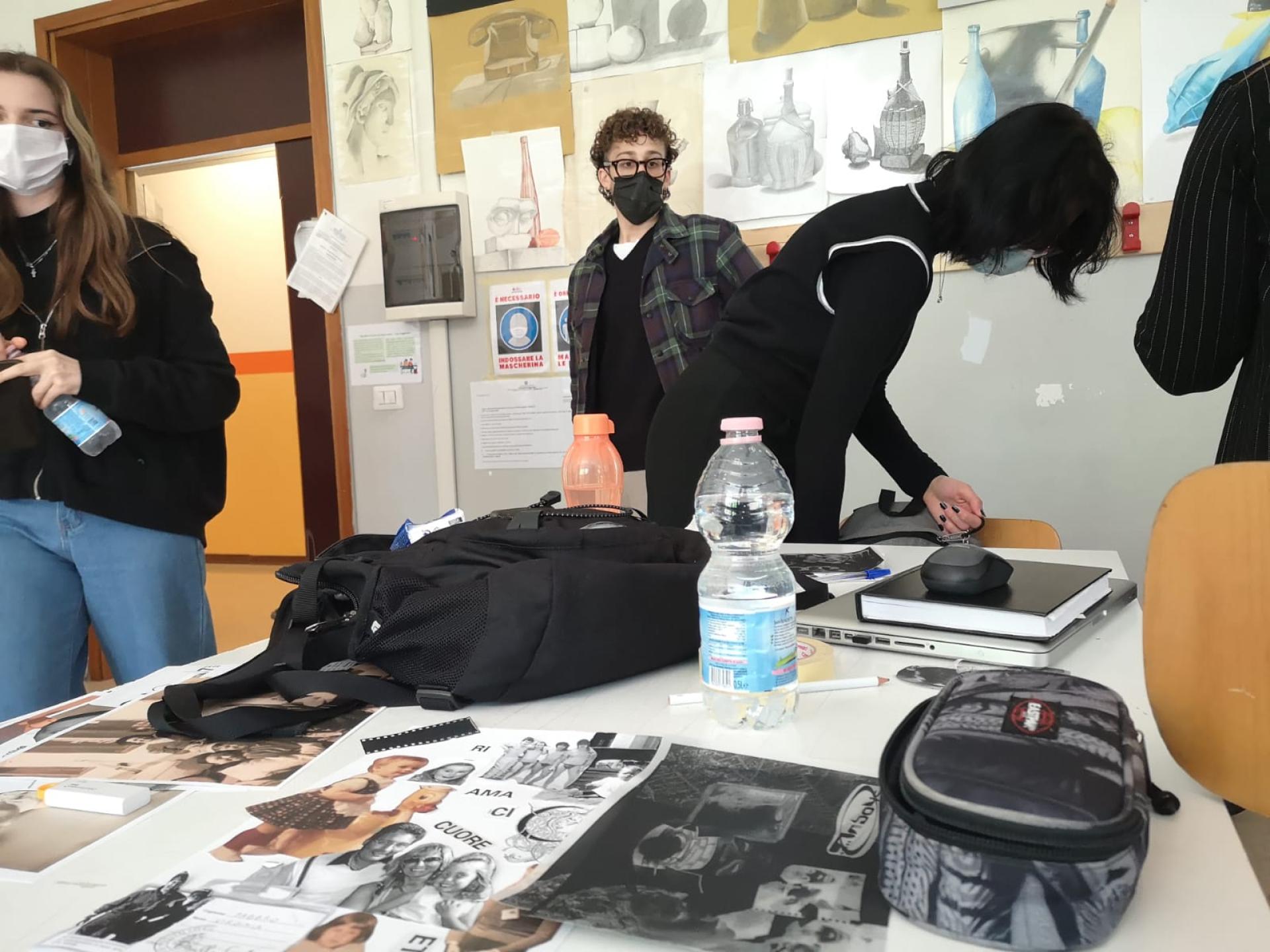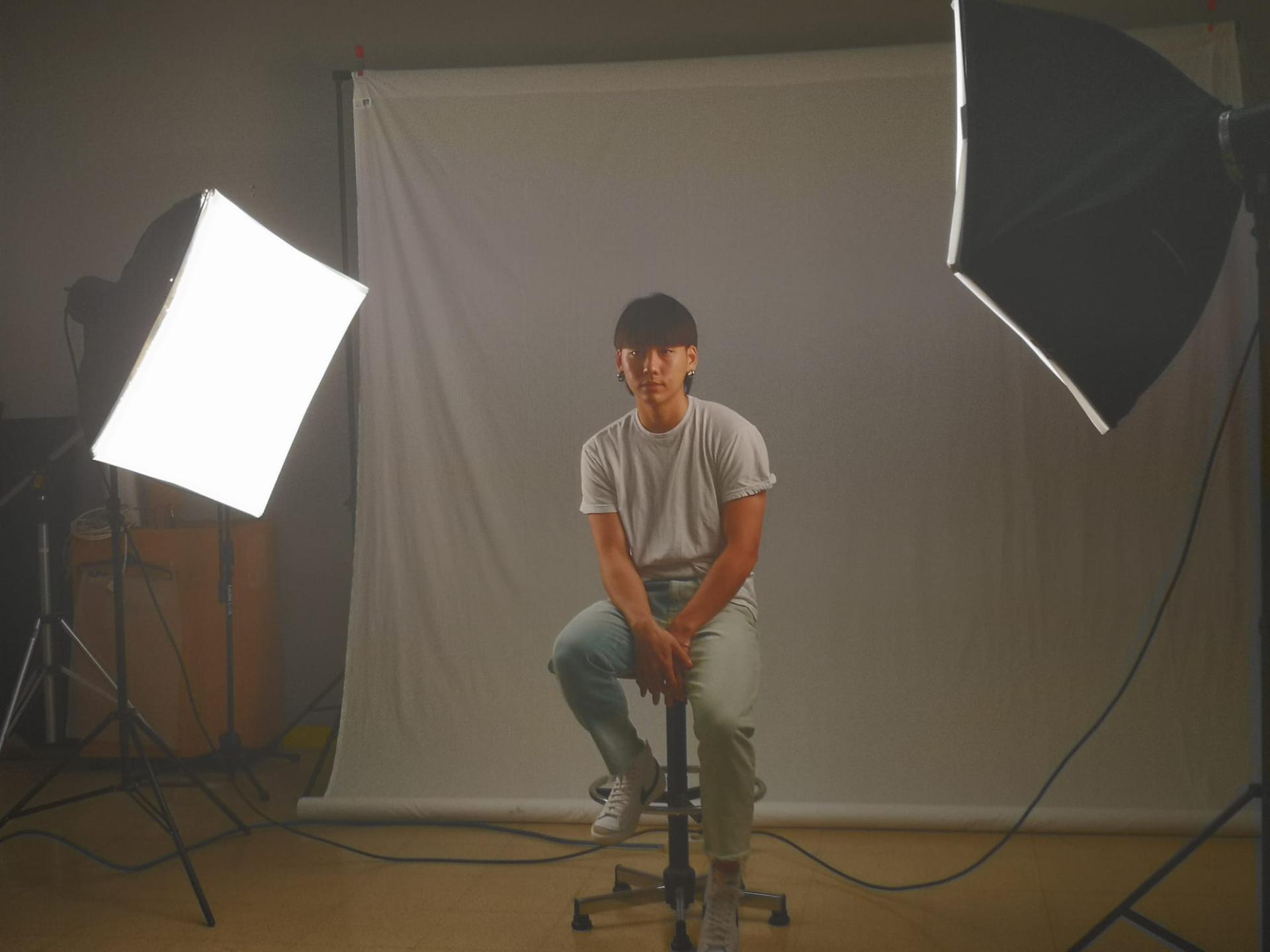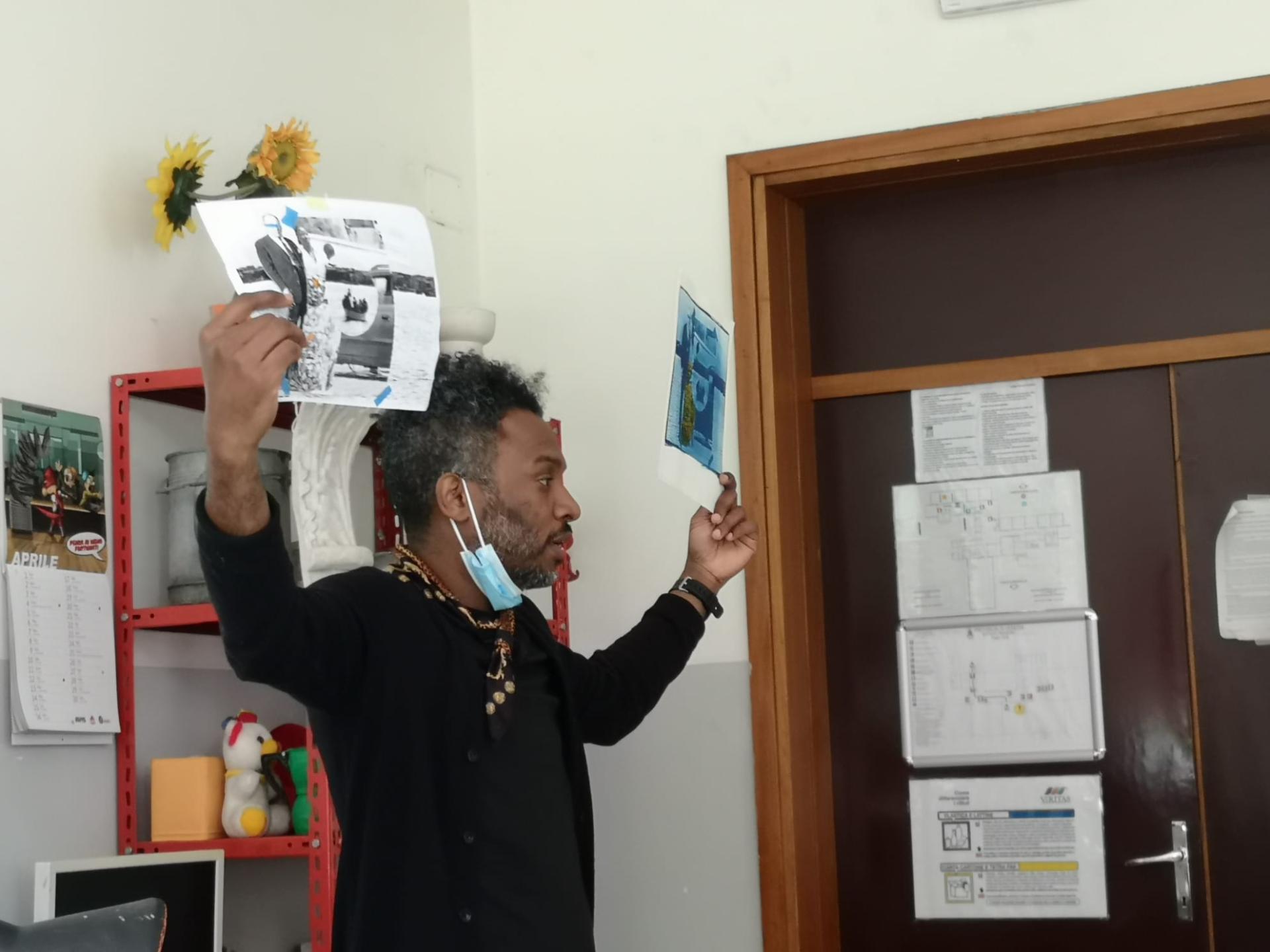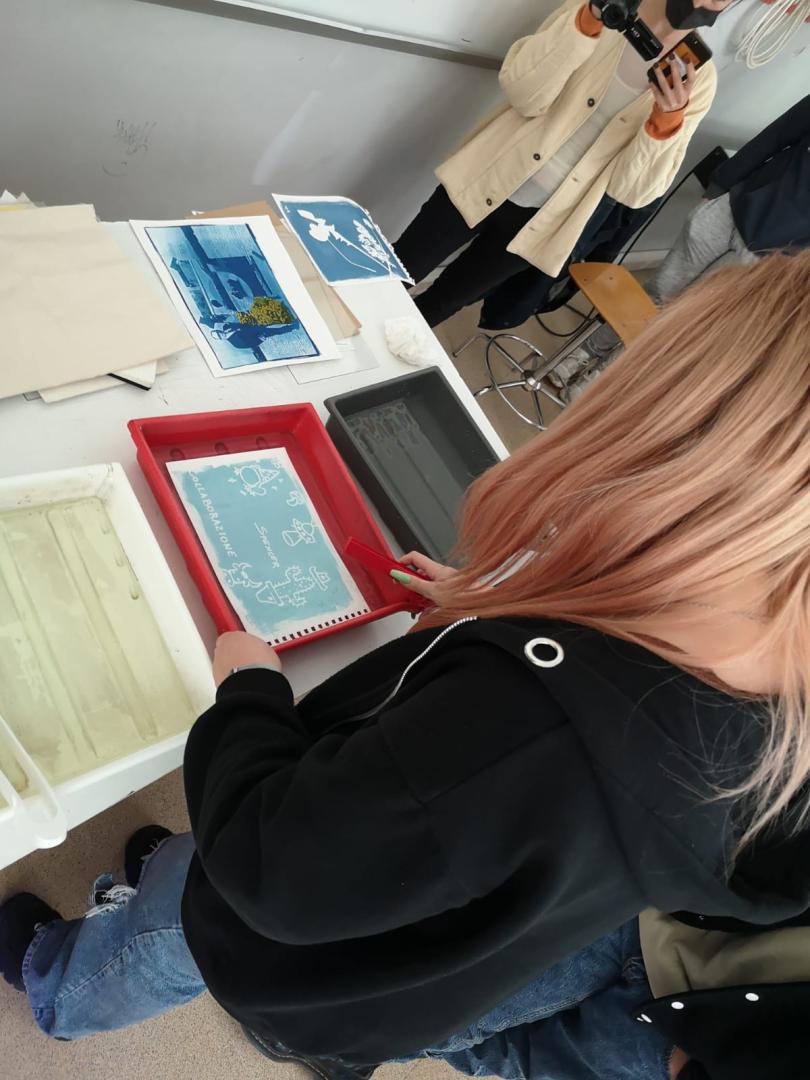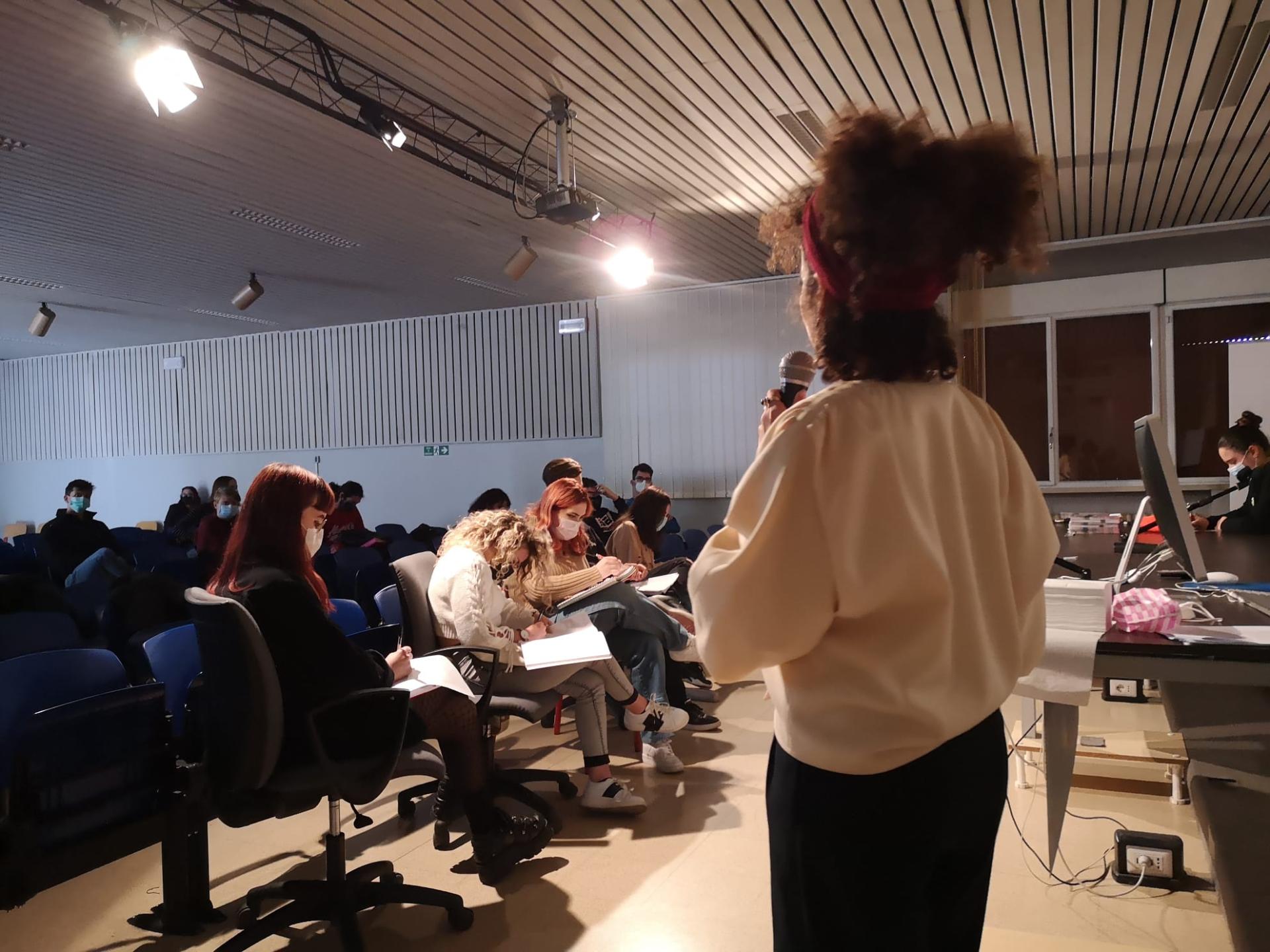PTM
Basic information
Project Title
Full project title
Category
Project Description
PTM_Pass the Mic! is a project that aims to inaugurate a hybrid format between higher education and artistic experimentation and has its roots in the thought of libertarian education and in the most innovative European practices straddling the world of performing arts and theoretical research.
Project Region
EU Programme or fund
Which funds
Other Funds
The project was presented for Creative Europe - Cultural Cooperation Projects 2020.
Creative Europe’s aims for the 2014-2020 funding period were to:
- help the cultural and creative sectors seize the opportunities of the digital age and globalisation;
- enable the sectors to reach their economic potential, contributing to sustainable growth, jobs, and social cohesion;
- give Europe's culture and media sectors access to new international opportunities, markets, and audiences.
Specifically, this involved providing funding for:
- artists and cultural professionals,
- cinemas,
- films,
- book translations.
In 2014-2020, Creative Europe encouraged those active in the audiovisual, cultural and creative sectors to operate across Europe, to reach new audiences and to develop the skills needed in the digital age. By helping European cultural and audiovisual works to reach audiences in other countries, the programme aimed to contribute to safeguarding cultural and linguistic diversity.
Sub-programmes and strands
The Culture sub-programme aimed to help cultural and creative organisations to operate transnationally, to promote the cross-border circulation of works of culture, and to support the mobility of cultural players. It provided financial support to projects with a European dimension aiming to share cultural content across borders. Funding opportunities covered a diverse range of topics: cooperation projects, literary translation, networks and platforms. The supported activities aimed to enable cultural and creative players to work internationally.
Description of the project
Summary
The data on enrollments in higher education in Europe denote an under-representation of minorities, with particular reference to students from first or second generation migrant backgrounds (OECD PISA 2015 and 2016 data), marked by a strong general school lag and school drop-out during secondary education (European Commission/EACEA/Eurydice, 2019), although it represents the most dynamic segment of the school population in terms of annual increase. While a lower access to higher education is often attributed to socio-economic conditions, scholars highlight how the persistence of structural inequalities that affect migrant populations cannot be disentangled from the lack of problematization of the colonial past and the forms it reproduces in present times.
Pass the Mic! (PTM) envisions the creation of a South-European network of countries that are being heavily affected by migration flows (IT, EL, PT), two of which come from a recent past of colonial history (IT, PT), elaborating an operative educational device that aims at contributing to increase the access to higher education to communities exposed to phenomena of renewed racism and lack of social mobility as an effect of the migratory process in Europe.
We use the emancipatory power of arts to decolonize education through an innovative art-based educational model that interlaces embodied art practices coming from performing arts (Iuav), applied to social research through ethnographic-based art (EBANOCollective) and critical artistic curatorship (Ariona Hellas SA -Onassis Stegi ).
Thanks to the partnership that brings together two established Institutions and a collective operating on the level of local communities the proposed education practices of decolonization through the arts will work as engines in the production of forms of knowledge that are rarely to be found in the traditional Institutional and Educational milieu.
Key objectives for sustainability
PTM provides the establishment of networks on different scales, which allows its sustainability and reproducibility on the long run.
a) On a local scale, the targeted schools will be firstly connected with a CR, that will accompany and coordinate the project’s phases, and with the team members from the local partner institutions (Iuav, EBANOCollective, Ariona Hellas SA - Onassis Stegi ). This network will create a continuous exchange thanks to the implementation of 1) training sessions 2) artistic residencies 3) mentoring between the secondary school population (students and teachers) and academic/cultural institutions during the course of the project, which will enable the emergence of new projects and synergies at the local level, ensuring the project continuity.
b) Bridging art, culture and local communities, the project will be included in the outreach policies of each partner institution, that are increasingly pivotal aspects of cultural and academic institutions. By ensuring high quality outputs, the project is configured as a replicable model in institutional outreach. The first outcome of the project is indeed the creation and circulation of an innovative methodology that will be offered to teachers to improve their teaching methods. The methodology will be replicable and used by teachers also in other classes during their teaching schedules. The final output of this specific action of the project will be the publication of a User Guide in 4 languages (Italian/ Portuguese/Greek/English) that will be a tool for other secondary schools in each Country at local and national level.
c) Moreover, each country involves several associated local cultural actors - cultural associations, local municipality’s cultural and education departments, and artistic festivals - that will broaden the competencies of the local network providing the project dissemination through their communication channels.
Key objectives for aesthetics and quality
The project encourages the birth of professional paths in the field of contemporary arts through the program addressed to the secondary schools’ population, with the intent to create new professional skills and new competences among students. The students will be involved in the program in two steps: the first involves the active participation in the process of creation of the ARs in residence, thus allowing a transmission of knowledge and artistic skills in a playful and unconventional way. During the second step of the program students will be asked to produce self narrations through auto-dramatized performances / talks / research thanks to the mentoring of professional CUs and the CRs that will accompany the educational and creative process. Students will be invited to present / display their artistic work, within the final event in each partner Institutions (Iuav, EBANO and Ariona Hellas SA - Onassis Stegi ), thus facilitating the exchange among professional artists, teachers and trainers that take part in the project. The project also creates new links between the partner Institutions allowing the circulation of knowledge, the exchange of expertise and the circulation of cultural operators and artists, during the project and potentially after its conclusion.To address the identified targets and enhance the artistic capacity, PTM relies on a specifically designed methodology in which actors not only from Institutions but also from the associationism (EBANOCollective) are actively involved during the entire process promoting cross-fertilisation, co-research, and co-ownership of results.The art works produced in the residences will be then presented within a Festival of contemporary performing arts (Drodesera , Trento - July 2021) dedicated to horizontal knowledge transmissions through a hybrid format (showcase, talks, open workshops ecc.) and in the two Institutions (Iuav /Ariona Hellas SA - Onassis Stegi ) of the project in the closing event.
Key objectives for inclusion
PTM tackles the reproduction of social inequalities among minority groups which emerges from the low rates of enrollment of students with migration background which is a transversal problem in European Universities. While national policies are being implemented to ensure rights to equal access to students in public schools, the migration phenomenon still represents a challenge to mainstream education systems which requires large scale collaborative actions that aim at rethinking national strategies and working towards the formulation of sustainable best practices. The cooperation at the European level in matters of migrant inclusion into education systems is particularly urgent when considering the rise of conservative policies that threaten the founding ethical and civil values on which the EU is based, among them the right to education.The EU has always stressed the importance of promoting the integration of children and young people from migrant backgrounds in schools and facilitating their integration into society through education. Despite all efforts at European and national level, there is evidence that pupils with a migrant background continue to lag behind their native peers in many areas of education in most European systems (OECD PISA 2015 and OECD 2016 data).PTM moves from the conviction that, to tackle the reproduction of social inequalities and structural racism among youth with migration background in European countries, it is necessary to work on a cultural reframing of social and educational strategies and narratives on migration at the European level. In this framework, the project proposes to work on the decolonization of knowledge and education by developing a collaborative,interdisciplinary critical lexicon that informs the artistic practices that will be carried out in the participating schools.
Results in relation to category
1) The first outcome of the project is the creation of an innovative and reproducible methodology that will enable teachers and professionals to revise and improve their teaching results in contexts of high migration rates and school drop-out percentages. The methodology will result from the collaboration of specialists with transversal competencies in art, ethnographic practices and curatorship, in an effort to deliver qualitative tools to deal with context-specific dynamics.
1.a) An output of this specific action of the project will be the publication of a Methodology User Guide in 4 languages that will be a tool for other secondary school teachers and professionals to learn and replicate the methodology applied. Thanks to the network of local associated partners and through online dissemination, the guide will be distributed in a large scale to reach beyond the local and national boundaries.
2) A second outcome of the project will be the knowledge transmission resulting from the artistic residencies which will take place inside the schools. The expected outputs of the residencies will be:
2.a) The production of 8 new participatory art works (performances / performative talks - conferences / visual art/ video / installations ) showcased in the frame of the Festival Drodesera (Trento, Italy), which is a local partner of the project and a related catalogue.
2.c) The displaying of the artworks at local level within the three main partner institutions.
2.d) The outcomes will be archived in a final exhibition catalogue, that will be printed in limited edition (10 copies for each partner) and also available in a digital online version on PTM website.
3) The communication and dissemination strategy will be implemented by the creation of a Social Network Communication strategy. (Instagram/FB/Twitter/YouTube channel).
3.a) The first output of the Communication Strategy will be the PTM website and online innovative platform.
How Citizens benefit
The first target group is formed by up to 60 students (20 for each country) that are following the program in each school, with a specific attention to students with migrant backgrounds in each Country. The students chosen to be involved are aged between 17 and 18 years old, coming from marginalized schools, who share the same problems of accessing Universities courses, equally distributed between males and females to balance the gender gap. In this way, students from minority backgrounds are coming in contact with participatory practices and contemporary arts. They are empowered to create their own works of art, to reflect on their practices and to express their views on decolonizing practices and on alternative forms of learning in the school environment. The process is meant to provide them with a new self-esteem, a with a feeling of belonging in a bigger group that comprises students with similar migrant backgrounds from other countries.
The increase of the migration phenomena inside peripheral territories already marked by strong social disease generates an urgent need of upgrading the teaching methods for teachers that are facing new educational challenges. For that reason, the second target of the project are the teachers of Secondary Schools, working in marginalized Schools in each Country that are involved through the intensive workshop on decolonization and that are following all the actions of the program. Teachers will play a key role by acquiring new educational methods through the workshop that they will use also in other classes, disseminating the project’s methodology.
Innovative character
The data on enrollments in higher education in Europe denote an under-representation of minorities, with particular reference to students from first or second generation migrant backgrounds (OECD PISA 2015 and 2016 data), marked by a strong general school lag and school drop-out during secondary education (European Commission/EACEA/Eurydice, 2019), although it represents the most dynamic segment of the school population in terms of annual increase. While a lower access to higher education is often attributed to socio-economic conditions, scholars highlight how the persistence of structural inequalities that affect migrant populations cannot be disentangled from the lack of problematization of the colonial past and the forms it reproduces in present times.
Pass the Mic! (PTM) envisions the creation of a South-European network of countries that are being heavily affected by migration flows (IT, EL, PT), two of which come from a recent past of colonial history (IT, PT), elaborating an operative educational device that aims at contributing to increase the access to higher education to communities exposed to phenomena of renewed racism and lack of social mobility as an effect of the migratory process in Europe.
We will use the emancipatory power of arts to decolonize education through an innovative art-based educational model that interlaces embodied art practices coming from performing arts (Iuav), applied to social research through ethnographic-based art (EBANOCollective) and critical artistic curatorship (Ariona Hellas SA -Onassis Stegi ).
Thanks to the partnership that brings together two established Institutions and a collective operating on the level of local communities the proposed education practices of decolonization through the arts will work as engines in the production of forms of knowledge that are rarely to be found in the traditional Institutional and Educational milieu.

